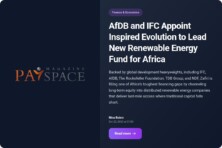Kubik is turning plastic waste into eco-friendly interlocking building materials like bricks, columns, beams and jambs.

Kubik, an upcycling startup that turns plastic waste into low-carbon building materials, has raised a $1.9 million seed extension round from African Renaissance Partners, Endgame Capital, and King Philanthropies.
The latest funding round took place months after the firm announced its initial equity investment. Kubik required a fresh inflow of funds as the startup launched its factory in Addis Ababa and prepared to scale its operations first in Ethiopia and then on the pan-African level in 2025.
Kubik co-founder and CEO Kidus Asfaw said the company eventually intended to out-license its proprietary upcycling technology for faster growth. “That’s how we feel that we can truly scale. It’s not by having factories all over the world, but having this industry adopt a new way of making materials globally,” he explained.
The low-carbon building materials produced by Kubik do not only use recycled plastic but also do not require cement, aggregates or steel, speeding up the construction process and bringing the cost down by “at least 40% less per square meter”.
Sustainability is a cornerstone of modern city development in Africa, where it helps manage rapid urban growth. Construction cost is one of the key barriers to the affordability of sustainable buildings. Hence, the availability of cheaper eco-friendly building materials presents a better option for developers of housing projects.
Besides, projects like Kubik address two critical issues at the same time. First, they facilitate sustainable building processes. In addition, they help control the spread of plastic waste, exacerbated by consumerism trends in regions facing rapid urbanization and economic growth like Africa.
According to Asfaw, Kubik’s materials have passed safety tests by the European standards agency, Intertek, which theoretically enables wider adoption of the technology.
The startup currently recycles 5,000 kilograms (with a 45,000 capacity potential) of plastic waste a day. Kubik has partnered with corporates and Addis Ababa municipality for a regular supply of plastic waste. In its short-term plans, the startup is considering product diversification to cover pavers and flooring material.









